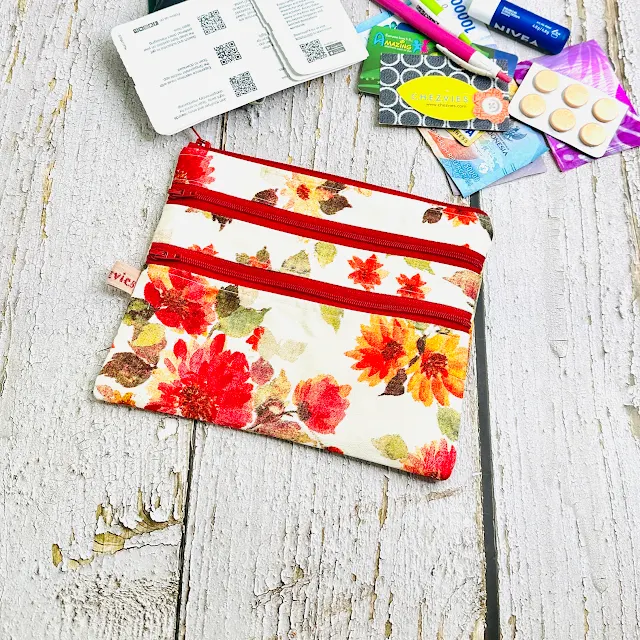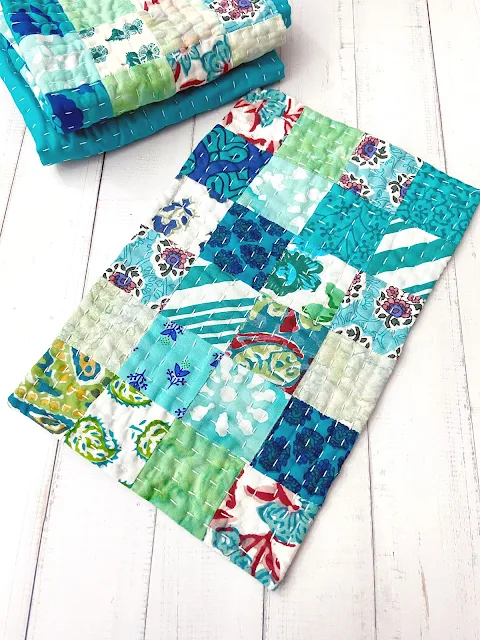Hello,
I’m still in scrappy mode this week! After diving into making the adorable mini purses I wrote about in my last post, I couldn't resist the urge to keep
going. So, what did I do next? I dug more into my scrap bins and started
piecing together some more patchwork panels.
First
up, I whipped up a Rosie Keychain Wallet using some brown scraps, and I have to
say, it turned out pretty awesome. In fact, I'm so thrilled with the result
that I've got plans to make a few more Rosie Wallets. They're just too cute to
resist!
But
that's not the only thing that's got me excited. I've also made a couple of NunoSmall Wallets too! For
the pink and purple wallets, I used the same quilt-as-you-go method as the mini purses.

Now,
for the red wallet, I decided to go traditional by making two mini log cabin
blocks, using 1.25-inch strips, and then threw in an extra strip in the middle
to make it a perfect fit for the Nuno Wallet. And I’m super happy with the
result! Making patchwork quilt wallets has been at the top of my list.
In
the original pattern of Rosie wallet I did not use batting, but in this
patchwork version, I used low loft
batting and quilted it pretty densely to make the panel flatter. When you
want to make a patchwork or quilted version of a wallet, remember to change the
interfacing to lightweight interfacing. The interfacing will give more structure and also make the wallet more durable.
























































